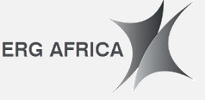
Establishing food security and providing skill training are some of the activities run by GSS’ project in Kolwezi.
Child labour is a critical issue for us, especially in the DRC. According to Unicef and other researchers, by 2014 some 42% of DRC children between five and 14 were not attending school. An estimated 40 000 children worked in artisanal and small scale mines.
Amnesty International recently reported that, two years after it had exposed how batteries used in electronic products could be linked to child labour in the DRC, major electronics and electric vehicle companies are still not doing enough to stop human rights abuses such as child labour entering their cobalt supply chains.
ERGA, however, is committed to finding ways to end the practice.
Working with the supply chain
On 19 September 2017, at the inaugural World Economic Forum Sustainable Development Impact Summit in New York City, Eurasian Resources Group together with other international businesses, founded the Global Battery Alliance. The Alliance is dedicated to ensuring that there is an ethical and sustainable global supply chain for the lithium-ion batteries that help power the Fourth Industrial Revolution and a low carbon economy, through electric vehicles, renewable energy technologies and smartphones.
At Metalkol RTR we are developing a Cobalt Chain of Custody programme which will be aligned to the OECD’s Supply Chain Due Diligence Guidance. We will also incorporate the principles of the UN’s Guiding Principles on Business and Human Rights in our management practices. This programme will ensure that Metalkol RTR’s cobalt is child labour free.
An integrated community development to eliminate child labour
In Kolwezi, the Good Shepherd Sisters have opened a centre that offers children the only free school in the area. The center is a part of a multi-dimensional program, particularly focused on supporting children who work in the mines and are involved in the worst forms of child labour. The program is developing a range of integrated activities that includes in addition to child education and protection, skills training for girls and women, farming for alternative livelihoods and community sensitization on human rights.
A spokesperson from the GSS program tells how for centuries the DRC has supplied raw materials to the world and locals have access to many dangerous and illegal artisanal sites. They dig as deep as 12 metres and often children see their parents die in landslides. It is an extremely harsh life. And because the people working those sites are uneducated and desperate, they are paid very little for what they produce.
The Good Shepherd Kolwezi center is near our Metalkol RTR project and a perfect fit for our strategy to improve social wellbeing and combat child labour in our operating regions. This is why we formed a three-year partnership with Good Shepherd International Foundation and pledged more than US$1 million to the GSS community development program that provides help to children, women, and the broader community It is an investment very well spent so far. There are more than 1 200 children in the school who quit the mines, 300 women started a business in farming and 300 girls gained skills catering and dress-making, opting to leave mining.
ERG Africa will be the primary implementation partner from within the Group.
“Children Out of Mining” programme
Moving forward, this year we will be partnering with international NGO, Pact, to develop a “Children Out of Mining” programme focused on awareness raising and sensitisation. The programme includes apprenticeships to help older children transition to alternative livelihoods.
“There can be no keener revelation of a society’s soul than the way in which it treats its children.” Nelson Mandela
Photos with courtesy from Good Shepherd International Foundation/Nyokabi Kahura
